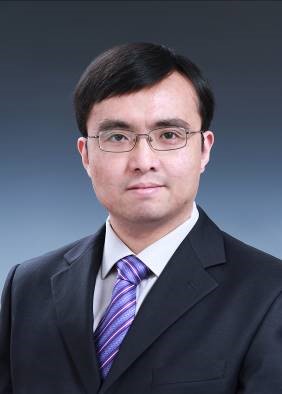
Prof. Hua Geng
Tsinghua University, China
Speech Title: Distributed Stability Control of Renewable Energy Conversion System
Abstract: In response to the increasingly worsening environmental and energy crisis, the transition from traditional thermal power generation based on fossil fuels to renewable energy generation such as wind and solar power has become an inevitable trend. Compared to traditional power generation, renewable energy generation units typically have smaller capacities and are characterized by clustering and distribution. The power coupling between multiple units can lead to a reduction in the stability margin of renewable energy clusters. This report presents the latest advancements in the stable control of renewable energy generation clusters, proposes a passive-based distributed stability control framework, and discusses the control technology requirements for renewable energy networks from the perspective of the stability needs of a power electronics dominated power system.
Bio: Hua Geng received the B.S. degree in electrical engineering from Huazhong University of Science and Technology, Wuhan, China, in 2003 and the Ph.D. degree in control theory and application from Tsinghua University, Beijing, China, in 2008. From 2008 to 2010, he was a Postdoctoral Research Fellow with the Department of Electrical and Computer Engineering, Ryerson University, Toronto, ON, Canada. He joined Automation Department of Tsinghua University in June 2010 and is currently a full professor.His current research interests include advanced control on power electronics and renewable energy conversion systems. He has authored more than 300 technical publications and holds more than 30 issued Chinese/US patents. He is the Editor-in-Chief of IEEE Trans. on Sustainable Energy. He served as general chair, co-chair, track chair and session chairs of several IEEE conferences. He is an IEEE Fellow and an IET Fellow, convener of the modeling working group in IEC SC 8A.

Prof. Loi Lei Lai
Guangdong University of Technology, China
Speech Title: How do Intelligent Power and Energy Systems Affect our Life?
Abstract:This talk covers a few important topics from intelligent power and energy systems that promote such as smart energy, smart transportation, smart mobility, smart health, and standards development to affect our ways of living. Various terminologies and definitions on the topics will be looked at. For example, in smart energy, with advanced control and management approaches will play a key role in a carbon-neutral society. Power system operation, control and management could be enhanced with the introduction of batteries such as those from electric vehicles. For transportation in its technological dimension that includes transportation technologies in conjunction with Big Data that can improve transportation efficiency. Major environmental, economic, and technological challenges for example climate change, economic restructuring, pressure on public finances, digitalization of the retail and entertainment industries, and growth of urban and ageing populations have generated huge interest for us to live smartly with the integration of technologies such as energy smart meters and artificial intelligence. Some current international research and development activities will be reported, importance of standards development and future directions will be discussed.
Bio: Loi Lei Lai received his B.Sc. (First Class Hons.) and Ph.D. from the University of Aston, Birmingham, UK, in 1980 and 1984 respectively. His D.Sc. is from City, University of London, London, UK, in 2005. All degrees are in electrical and electronic engineering. Professor Lai is currently Chairman of DRPT International Incorporated, Australia. He was a Pao Yue Kong Chair Professor with Zhejiang University, Hangzhou, China; Professor & Chair of Electrical Engineering with City, University of London, London, UK and a University Distinguished Professor with Guangdong University of Technology, Guangzhou, China. Professor Lai received an IEEE Third Millennium Medal, the IEEE Power and Energy Society (IEEE/PES) UKRI Power Chapter Outstanding Engineer Award in 2000, a special award from City, University of London in 2005 and is its honorary graduate, the IEEE/PES Energy Development and Power Generation Committee Prize Paper in 2006 and 2009 (Papers published in IEEE Transactions on Energy Conversion), the IEEE Systems, Man, and Cybernetics Society (IEEE/SMCS) Outstanding Contribution Award in 2013 and 2014, the Most Active Technical Committee Award in 2015 and 2024, and his research team received a Best Paper Award in the IEEE International Smart Cities Conference in October 2020. Professor Lai is an Associate Editor of the IEEE Transactions on Systems, Man, and Cybernetics: Systems, Editor-in-Chief of the IEEE Smart Cities Newsletter; a member of the IEEE Smart Cities Board of Governor; Member-at-large, IEEE Technical Activities Board (TAB) Committee on Standards & Chair of the Seed Funding ad hoc, Chair of IEEE/SMCS Standards Committee, IEEE/SMCS Fellow Committee Evaluator, IEEE/SMCS Distinguished Lecturer and IEEE/PES Lifetime Achievement Award Committee Assessor. He was a member of the IEEE Smart Grid Steering Committee; the Director of Research and Development Center, State Grid Energy Research Institute, Beijing, China; a Vice President for Membership and Student Activities of IEEE/SMCS; and a Fellow Committee Evaluator and Distinguished Lecturer for the IEEE Industrial Electronics Society. His current research and development interests are in smart cities, smart grid, clean energy and computational intelligence. He is an IEEE Life Fellow and IET Fellow.
Speakers in 2025 to be announced soon......
